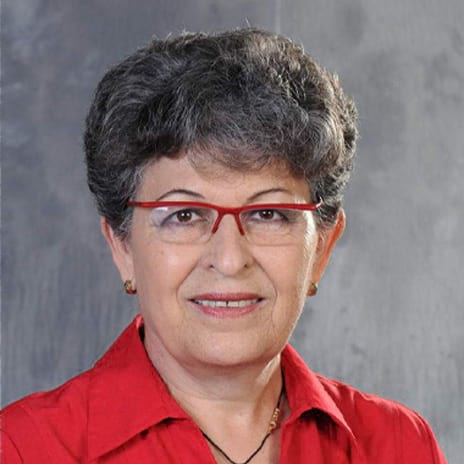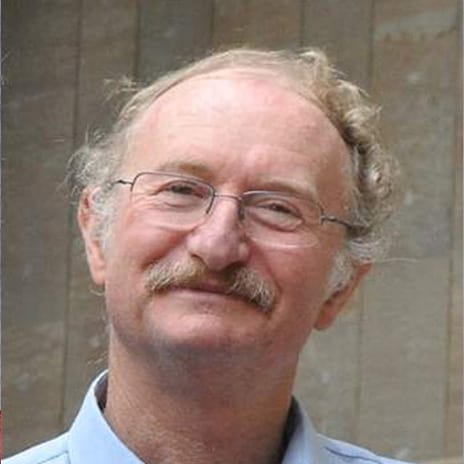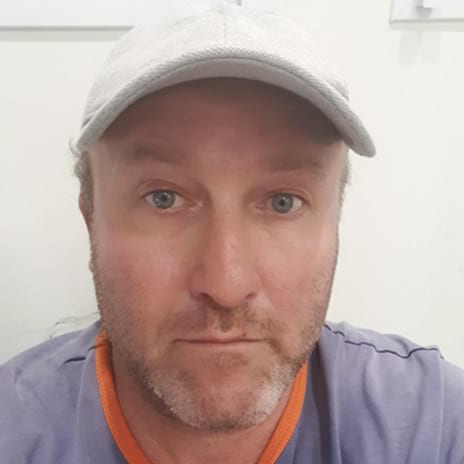About our founders
Quintrigen was founded based on the accumulated knowledge of Prof. Varda Rotter and Prof. Moshe Oren from the Weizmann Institute in Israel. The two were among the first to discover the role of p53 in cancer, over 40 years ago, and have been at the forefront of p53 research ever since. The company was established based on intellectual property developed in their academic labs, coupled with expert management and the investment of BL of South Korea and Yeda of Israel.
Scientific Founders


Prof. Varda Rotter


Prof. Moshe Oren


Dr. Perry Tal
Varda Rotter
Prof. Rotter received her PhD in cell biology from the Weizmann Institute in 1976. Following postdoctoral research at the Massachusetts Institute of Technology, she returned to Israel and joined the faculty at the Weizmann Institute where she holds the Chair of The Norman and Helen Asher Professor of Cancer Research. She chaired the institute’s department of molecular cell biology (2003–10); she has led the Women’s Health Research Center since 2000 and the FAMRI Center of Excellence since 2003. She is the Norman and Helen Asher Chair of Cancer Research Professor. Prof. Rotter, with two other Weizmann scientists, was first to clone and characterize the p53 gene and show that it actively prevents cancer. It has since been found that p53 is dysfunctional in about half of all cancers, making it the most frequently altered gene in all cancer tumors. A recipient of numerous honors, Prof. Rotter has been awarded the Leukemia Society of American scholarship (1983–1988); Feher Award for medical research (1993); EMET Prize for Art, Science, and Culture in the field of biology; and the Lombroso Award in cancer research (2007–2008). She is the recipient of the Anthony Dipple Carcinogenesis Award given by the European Association for Cancer Research in 2014, and was the Helmholtz International Fellow in 2013. She is a member of the American Association for Cancer Research, International Union Against Cancer, European Molecular Biology Organization (EMBO), European Cancer Academy, Israel Immunological Association, and the American Society for Microbiology. Prof. Rotter served as president of the Israeli Society of Cancer Research (2011–2013). She was appointed as an external scientific advisor to the advisory board of the Rappaport Research Institute-Technion, and serves as member of the board of DKFZ Heidelberg and other cancer research institutes in Europe.
Moshe Oren
Prof. Moshe Oren received his PhD in molecular virology from the Weizmann Institute of Science in 1978. He did postdoctoral work at Princeton University and at SUNY-Stony Brook. In 1981, he joined the Weizmann Institute, where he holds the Andre Lwoff Professorial Chair in Molecular Biology. Prof. Oren has held a number of senior positions at the Institute and is currently the Director of the Weizmann Institute’s Moross Integrated Cancer Center. Prof. Oren is a pioneer in p53 research. In the early 1980s, he cloned p53 and was involved in research that provided the foundation for much of the subsequent p53 research worldwide. Prof. Oren obtained some of the earliest evidence that p53 is indeed a tumor suppressor and was the first to prove that this gene causes apoptosis, the natural process that leads to cell death. These findings have enabled physicians to develop innovative therapeutic strategies, including the first clinically approved anti-cancer gene therapy. Prof. Oren’s current research focuses on understanding the mechanisms that govern the activity of p53 in normal and cancerous cells, and also the involvement of micro-RNAs and the ubiquitin-poteasome system in cancer. His numerous awards include the Leukemia Society of America Scholarship (1985–1990), the Feher Award for Medical Research (1993), the Abisch-Frenkel Prize for Excellence in the Life Sciences (1999), the Sergio Lombroso Award in Cancer Research, the Lombroso Prize for Cancer Research (2002), the Harvey Lectureship of NY (2002), the EMET Prize in Biology (2003), a Merit Award of the National Cancer Institute (2003), and the Israel Prize in 2008 for biochemistry. Prof. Oren is a member of the Israel Academy of Sciences and Humanities and of the Academia Europeae, a Foreign Associate of the US National Academy of Science and the US National Academy of Medicine, and a Foreign Honorary Member of the American Academy of Arts and Sciences.
Perry Tal
Dr. Tal received his BSc degree in biotechnology from Ben-Gurion University in 1999, his MSc and his PhD in molecular biology from the Weizmann Institute of Science in 2007. He did postdoctoral work at the Weizmann Institute of Science with Professor Varda Rotter and Professor Moshe Oren in the field of p53 research. Dr. Tal has extensive knowledge and experience in most molecular biology techniques including: Phage Display technology (graduate of the Phage display of proteins and peptides course - Cold Spring Harbor) for the identification of potential therapeutic peptides; drug development; drug delivery; assay development; Western Blot analysis; purification of antibodies; microscopy; Eliza technology; gene cloning and more. He published several lead papers in the field of p53 research. Since 2011, he has been leading scientific research to find and develop novel peptides that are capable of stabilizing and reactivating mutant p53 protein, toward clinical application of such peptides. This groundbreaking research has been the basis on which Quintrigen has been founded.
Moments to remember
2019 YEDA-BL conference, Seoul, Korea
Prof. Rotter with Andy Park
1970s at the Weizmann Institute
April 1990
Early days
Prof. Oren in the lab
